Grace Tame is surrendering her position to dirty politics
The Australian of the Year’s ability to rise from trauma and speak for survivors is heroic. But it doesn’t give her a free pass.
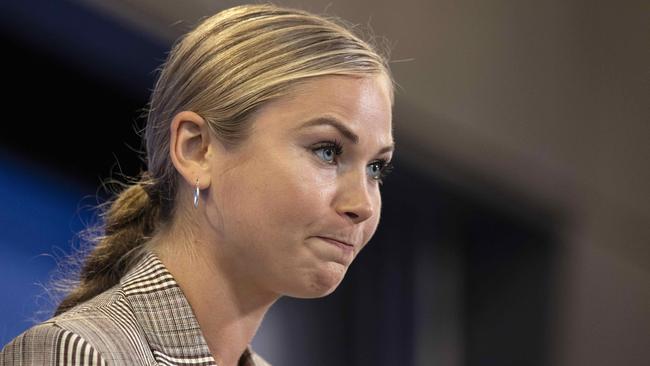
Tame’s ability to rise from the trauma of sexual abuse and to speak for survivors is heroic. But it doesn’t give the young woman a free pass from cool-headed and careful analysis when she chooses to politicise her position. And that is surely what she is doing as Australian of the Year.
The imbeciles firing the “c” word at Tame this week might learn something from what follows, too. Tame is entitled to express her views on any matter she chooses. It’s a free country. If she doesn’t like Pauline Hanson, she’s free to say so.
But her attempt to remove Hanson from platforms, including from a podcast with Jessica Rowe, is terribly misguided. So were her other political interventions targeting Scott Morrison, Christian Porter and Amanda Stoker.
Tame was made Australian of the Year for her tremendous work to highlight the scourge of sexual abuse and fighting for women to be heard. As Australian of the Year, she was perfectly placed to use that privileged platform in a non-partisan way to unite the country around these important issues. That is how you bring power to a cause.
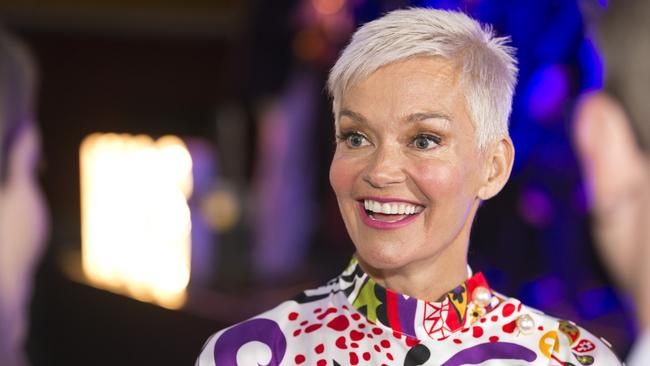
Instead, Tame is dividing the country. By antagonising many Australians with her increasingly political interventions, many people will stop listening even when she has something non-partisan to say. More and more, she is surrendering her unique presence as a sexual abuse survivor to dirty partisan politics. Inevitably, she will – and should – be subjected to the robustness of that space where no one is a sacred cow.
Not even Tame.
She has undermined her position as Australian of the Year by telling the country that the Prime Minister lacked a moral compass when he temporarily promoted Porter, then still a minister of the crown, to Acting Leader of the House. It was a double-barrelled political attack that revealed more about a young and impressionable woman than about the Prime Minister or Porter.
Porter was accused of rape by a woman who ultimately withdrew her allegations, and police decided not to pursue the matter. While Tame would have liked an independent inquiry into those allegations, she, and older minds who should know better, haven’t explained how it could settle the matter. Sadly, the complainant had died, her struggles with mental illness were well known, and there was not a scintilla of admissible evidence corroborating her claims.
Australia is a democracy committed to due process and the presumption of innocence. No one boosts their credibility by chipping away at those bulwarks of our justice system, not even an articulate young Australian of the Year.
Tame’s attack on Stoker’s promotion as Assistant Minister for Women, again, was without enough consideration. Stoker is a defender of women’s rights. She has a stellar career, is raising three children and is a testament to what a young woman can achieve.
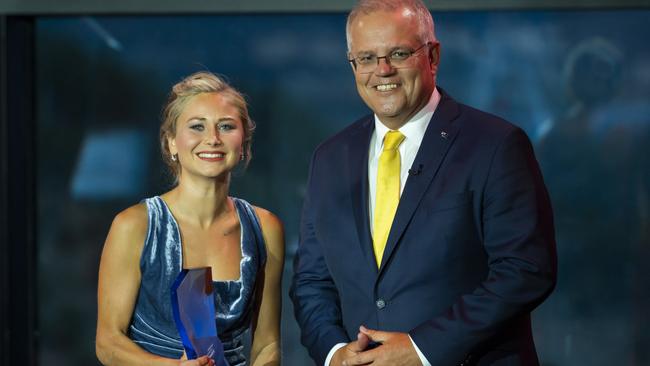
Stoker is also a defender of free and open debates. She has made it clear that she looks dimly on attempts to no-platform and cancel people, even if she disagrees with them. She expects universities to offer students the chance to think for themselves. The reason is clear – the best way to dismantle bad ideas is by rebutting them with good ones. If you silence people, you turn them into martyrs. Those with rotten ideas will fester in the darker recesses of society, empowered by their newfound status as a “victim” of a cancelling mob.
Her principles intact, Stoker came close to the heart of the issue with Tame. She told 2GB in March that while “(Tame) should be heard, that doesn’t necessarily make her right”.
That observation applies equally to Tame’s decision to join a mob trying to shut down the podcast with Hanson. Tame is entitled to join a censoring mob, but she was wrong to do so.
Maybe we need a better selection process for Australian of the Year, one that considers the downsides of providing a privileged platform to a fiery and passionate activist who may end up dividing the nation, rather than uniting us.
Unlike Rosie Batty and Patrick McGorry, who remained focused and outspoken on the issues that led to their elevation as Australian of the Year, Tame has very quickly descended into a political partisan.
That also means that she is being used as a political partisan, especially by those in the media who don’t question Tame when she attacks the Morrison government because it suits their political purposes not to do so.
Tame’s youthful exuberance and her exploitation by others is not unlike that of Greta Thunberg. Albeit younger than Tame, the climate zealot is full of passion, prone to saying patently silly things, and the go-to-girl for adulating activists.
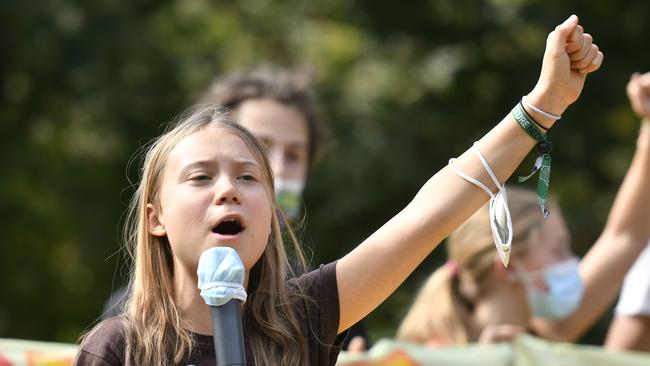
Listening to her ramp up her misguided attacks in recent months, I wondered whether some of the great books of literature and philosophy would help to encourage her to pause, and perhaps bring some unifying heft to being Australian of the Year.
These books don’t guarantee wisdom, but they offer a good shot at getting some. Yes, most were written by old white men. If you think that’s reason enough to cull these books, then you really do need to read them.
The Crucible, for example, is a good place to start. Hardly a week goes by without a bunch of self-appointed morality zealots whipping up a witch hunt. Arthur Miller’s 1953 play about the repressive forces that led to the Salem witch hunts was intended as an allegory of McCarthyism that gripped America in the early 1950s. During both periods, fact and fiction were lost in a miasma of irrational retribution against those deemed, with scant evidence, to be immoral.
In 1996, Miller explained in The New Yorker why he wrote The Crucible: “What terrifies one generation is likely to bring only a puzzled smile to the next.” Miller’s play reminds a new generation about the dangers of the irrational fear that Joseph McCarthy spread across America. Miller describes Harry Truman’s loyalty boards and the House Committee on Un-American Activities setting off a “veritable holy terror” as accusers hunted communists and their suspected sympathisers, throwing evidence to the wind. Miller recalls the paralysis of many liberals who were unsettled by the oppressive tactics but said nothing for fear of being targeted as covert communists if they spoke out.
Miller’s Crucible speaks to the latest insanity gripping our society, when mobs in the mainstream media and social media hunt down and shame into silence anyone they deem to have transgressed some line drawn by them.
Jessica Rowe crossed their line by interviewing Hanson, and then felt the brute power of a modern marauding mob joined by the Australian of the Year.
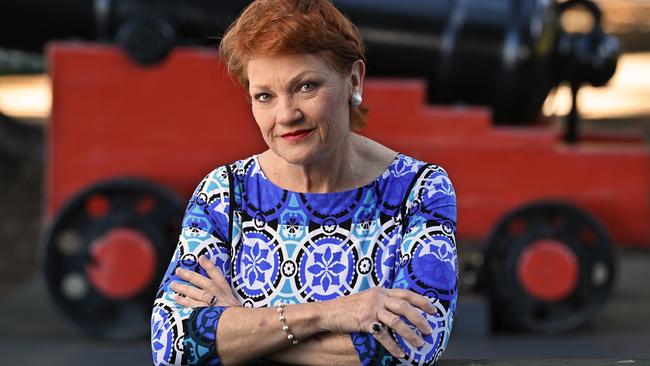
In chapter two of On Liberty, John Stuart Mill lays out the best defence of free speech: “The peculiar evil of silencing the expression of an opinion is that it is robbing the human race; posterity as well as the existing generation; those who dissent from the opinion, still more than those who hold it. If the opinion is right, they are deprived of the opportunity of exchanging error for truth; if wrong, they lose, what is almost as great a benefit, the clearer perception and livelier impression of truth produced by its collision with error.”
Mill wasn’t just concerned with governments snuffing out different views. More than 150 years before social media mobs started bullying people into silence, Mill warned us about the coercive power of menacing social forces that demand conformity.
These old books teach us to catch our breath and encourage us to think more about how we treat others, including those we think we can lord it over.
As Portia says to Shylock in Shakespeare’s The Merchant of Venice:
“The quality of mercy is not strained.
“It droppeth as the gentle rain from heaven…
“It is twice blest:
“It blesseth him that gives and him that takes.”
“Mercy,” says Portia, “is above the sceptred sway.”
In other words, there is nobility in showing mercy, particularly by those with power. The Australian of the Year might consider this as an alternative to angrily claiming a pound of flesh from politicians she disagrees with and imputing immoral motives to them.
Tame may not be interested in any of this. That is her prerogative. She is celebrated by many people, among them unthinking admirers and insufferable sycophants.
It can’t hurt to pause and think about what might help to unify the country around important issues, rather than providing fuel for our bitter partisan divisions.







No joy comes from reminding Grace Tame that there is no such thing as a protected species in Australian politics. Nor should there be.